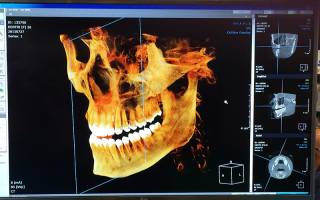Up to 25% of individuals with severe oral dysplasia (pre-cancer) will progress to develop invasive oral cancer. There remains today no effective mean to stop progression of oral dysplasia. Most patients are offered surgery, which however is associated with potentially high morbidity and unclear long-term efficacy. |
|---|
This project builds upon previous research work on the management of patients with oral pre-cancer. The five-year study will investigate whether a widely-available, repurposed medication (Sodium Valproate) can reduce the risk of oral dysplasia progressing to invasive oral cancer.
Sodium Valproate is known to have biological effects onto cell gene expression (epigenetic effect) and we hypothesize that these effects could translate into halting or at least slowing down the progression of oral mucosa dysplastic epithelial cells to malignancy (epigenetic reprogramming).
We hope to find that Sodium Valproate can effectively alter the gene expression of dysplastic epithelial cells so to stop or at least slow done the progression to oral cancer. We also hope to see that Sodium Valproate is well tolerated in tour group of patients.
 Close
Close




